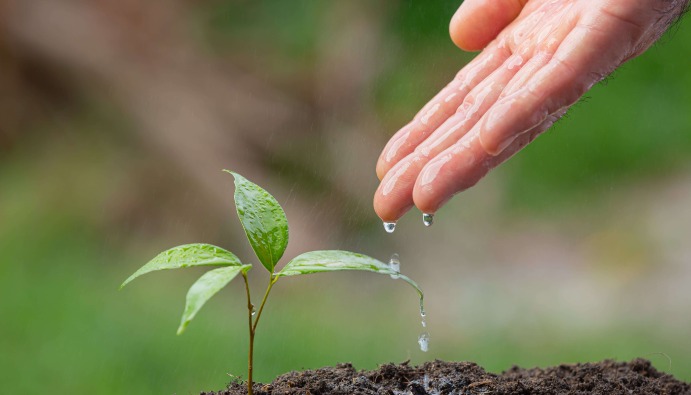Agricultural Irrigation Water Quality: Parameters
What Does Agricultural Irrigation Water Quality Mean?

Agricultural Irrigation Water
The quality of irrigation water used in agricultural production has a direct impact on plant growth, soil fertility and environmental health. Poor quality irrigation water can lead to salt accumulation, deterioration of soil structure and crop losses. Therefore, physical, chemical and biological properties of irrigation water should be analyzed regularly.
The concentration of dissolved ions in irrigation water indicates the quality of irrigation water.
Four basic criteria for determining the quality of irrigation water;
- conductivity of water (EC)
- sodium adsorption rate (SAR)
- residual sodium carbonates (RSC)
- ion toxicity
Sodium excess and ion toxicity are the most important problems in agricultural irrigation water. Especially in arid regions with low rainfall, salt accumulation will occur in the root zone of the crop. In such cases, changes in soil salt content and irrigation water quality should be closely monitored. Excess sodium in irrigation water will cause deterioration of the soil structure and prevent the penetration of water into the soil.
Parameters Determining Irrigation Water Quality
The quality of agricultural irrigation water is assessed based on physical, chemical and biological parameters.
1. Physical Parameters
- Turbidity Suspended solids in the water can cause blockages in pipes and irrigation equipment.
- Color: Indicates the presence of organic matter. Ideally, irrigation water should be colorless or slightly colored.
- Odor and Taste: It may indicate the presence of chemical or biological pollution sources.
2. Chemical Parameters
- pH: For plant growth and soil fertility, pH should be in the range of 6.5-8.4.
- Salinity (Electrical Conductivity - EC): High salinity inhibits water uptake by plant roots and causes salt accumulation in the soil.
- EC Evaluation:
- 0-0.75 dS/m: Safe.
- 0.75-3.0 dS/m: Slightly effective.
- 3.0 dS/m: Hazardous.
- Total Dissolved Solids (TDS): Indicates the total amount of minerals present in water. TDS should be between 450-2000 mg/L.
- Sodium Adsorption Rate (SAR): It is an important parameter affecting soil structure. High SAR disrupts the structure of clay soils and reduces the permeability of water.
- Bicarbonate and Carbonate: High levels can shift the soil towards alkaline pH levels.
- Chloride: High levels of chloride can lead to toxic effects on plants. Chloride levels in irrigation water should be below 70 mg/L.
- Nitrate and Phosphate: Although essential for plant growth, excessive levels can contaminate groundwater.
3. Biological Parameters
- Microorganisms: The presence of pathogens such as coliform bacteria should be checked, especially in surface waters.
- Algae and Organic Matter: It can reduce the quality of water and cause clogging of irrigation equipment.
Nanolab Laboratories Group continues to provide services within the scope of Agricultural Irrigation Water Analysis. We also provide services in Well Water Analysis.
Contact us for more information.
You can follow us on LinkedIn for up-to-date news and posts about our services.
Follow our Instagram account to be informed about our latest blog posts.

